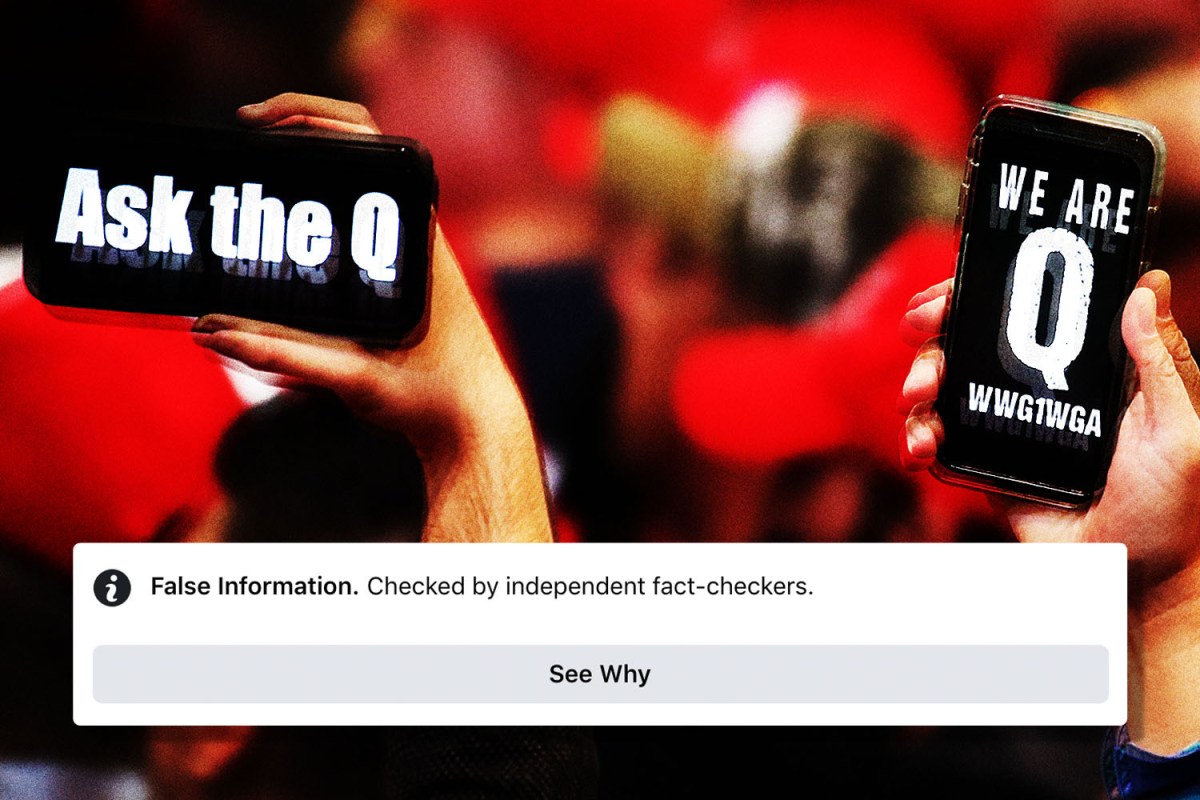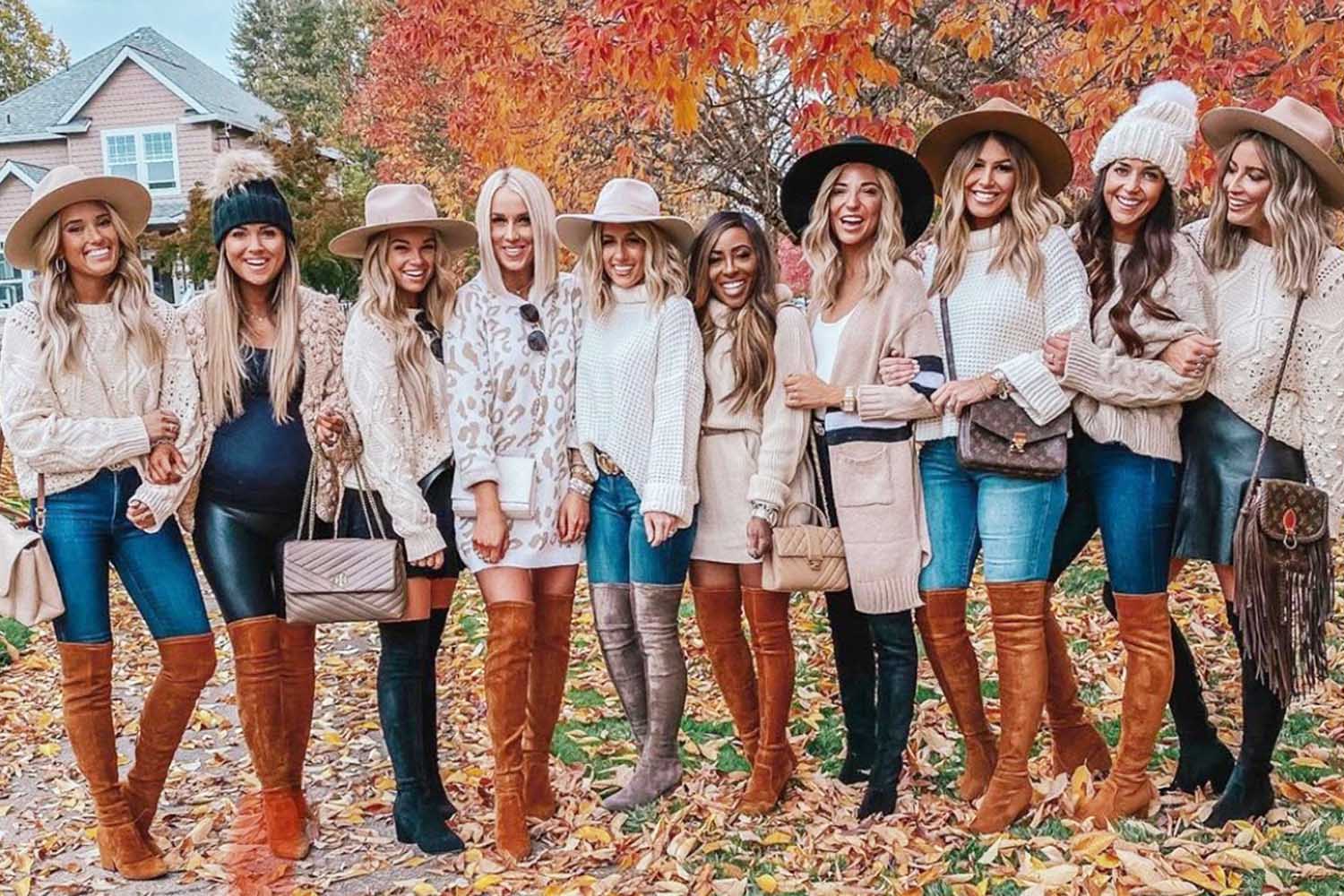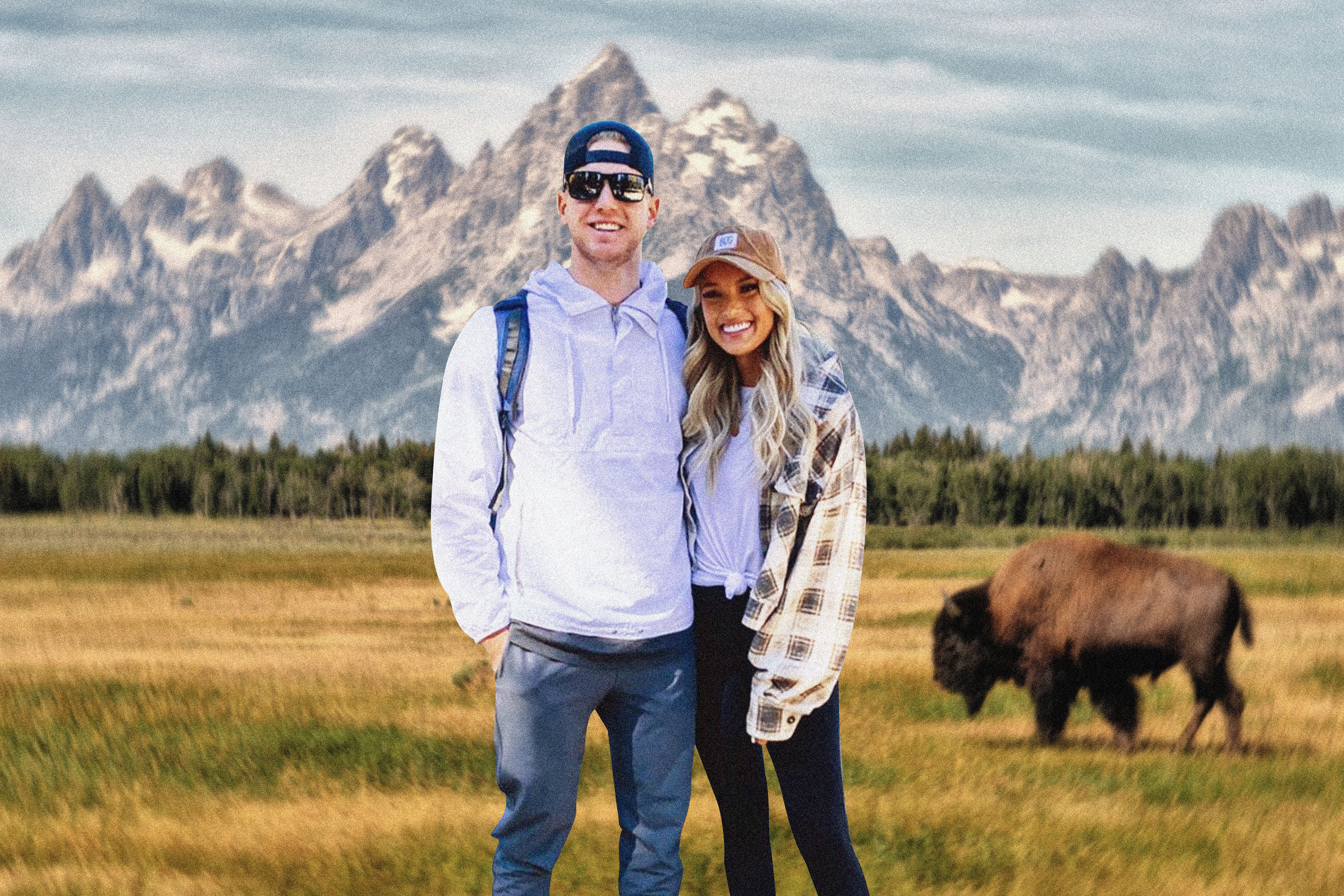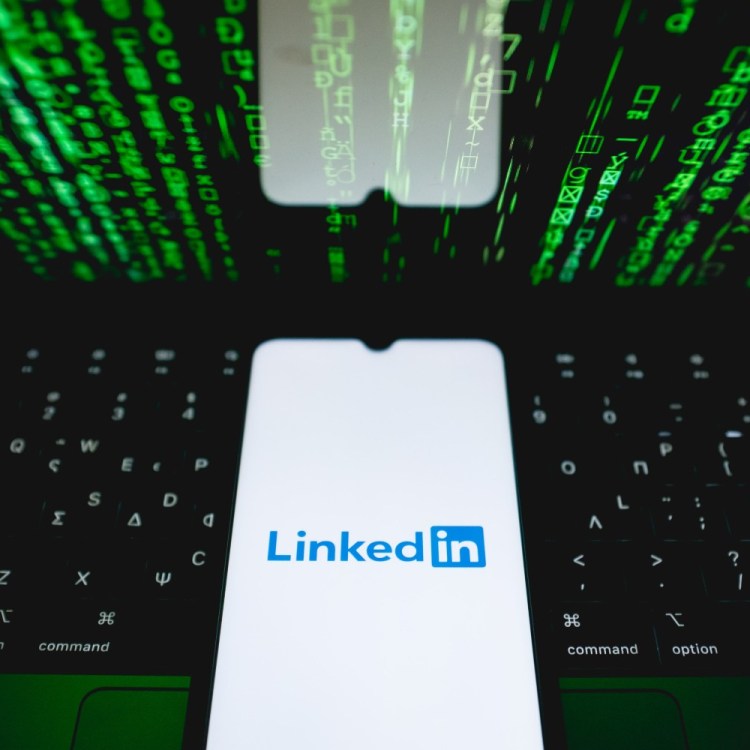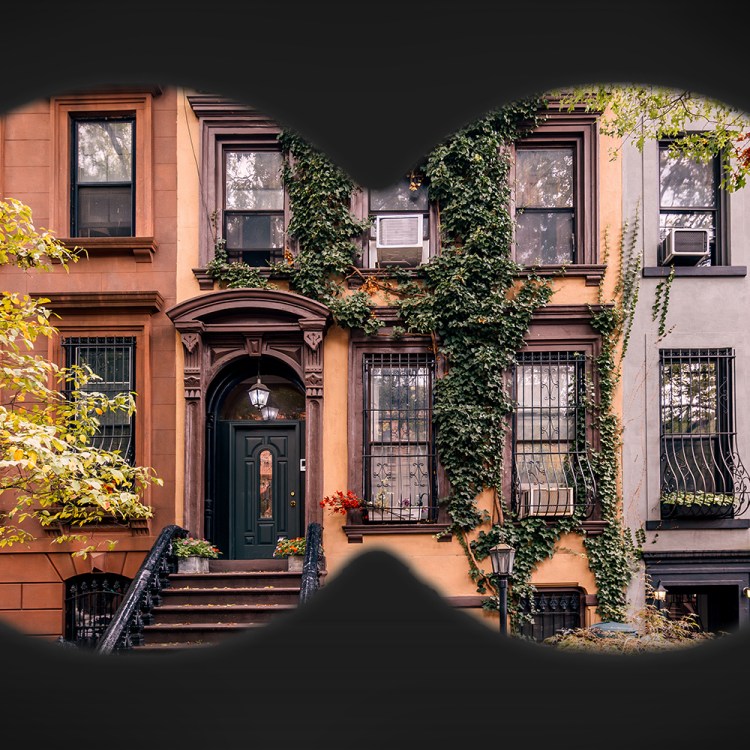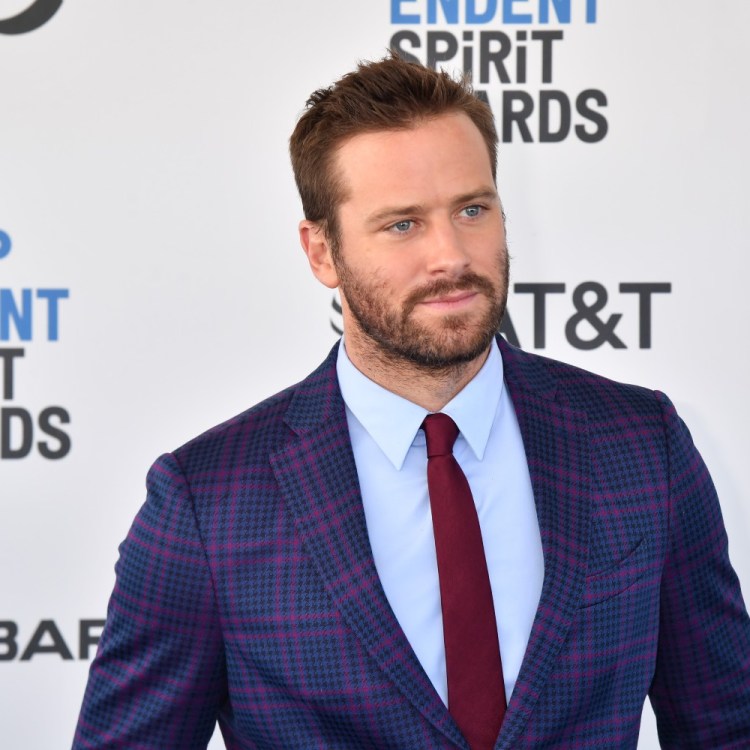On Tuesday, Facebook announced it would start cracking down on QAnon, removing any group, page or Instagram account associated with the now wide-spread conspiracy theory.
If you’re blissfully unaware, QAnon is an unfounded right-wing conspiracy theory that alleges Donald Trump is fighting a war against a sect of high-powered, Satan-worshipping pedophiles who eat children, also known as the “deep state.” But recently, it has extended into other conspiracy theories such as pushing suspicions about COVID-19 and advocating against expert medical advice, like wearing face coverings. The fringe theory that originated on sites like 4chan and Reddit has now gone mainstream, with popular social platforms like Facebook, Twitter and YouTube becoming misinformation hotspots.
The ban from Facebook is a drastic move for the company, which has let the dangerous, far-right conspiracy spread rapidly on its platform for three years. But while Facebook battles its own QAnon issue, Instagram (also owned by the Zuckerberg conglomerate) has been plagued by the disinformation bug as well.
Since the start of the pandemic, Instagram influencers have been casually casting doubt on the efficiency of wearing masks, sharing unproven theories about COVID-19 (like how it’s a human-made bioweapon created by the Chinese government or Bill Gates), and telling their followers to “wake up and #SaveTheChildren.”
Wellness influencers, in particular, are the influencer super-spreaders of far-out QAnon conspiracies. Take the case of Christian mom blogger Rose Henges, a holistic wellness advocate and anti-vaxxer with 126,000 followers, who in between posting aesthetically pleasing photos of her family, home and hemp products, pushes the QAnon conspiracy theory that Donald Trump was “divinely appointed” to stop child sex trafficking and the “deep state.”
According to Buzzfeed News back in March, Henges spread another baseless QAnon claim that the US Navy Hospital Ship Comfort, which was docked in New York City to help with the onslaught of COVID cases, was actually being used to covertly rescue children of sex slavery.
Henges, like many influencers peddling QAnon conspiracy theories, often posts colorful, decorative or feed-matching text posts urging followers to speak up about human trafficking with the hashtag #SaveTheChildren — a legitimate fund-raising campaign for the Save the Children charity that has unfortunately been hijacked by QAnon. The plight of human trafficking is now being used to recruit members and shift conversations towards false claims about a cable of liberal elites running a huge undercover sex-trafficking ring.
Other wellness influencers, as Mother Jones noted back in April, are using their medical credentials — though unrelated to epidemiology — to validate the coronavirus conspiracy theories they share on Instagram.
At the beginning of the pandemic, “holistic psychiatrist” Kelly Brogan, MD, posted misleading headlines about the effectiveness of masks and supposed dangers of social distancing from her husband Sayer Ji’s pseudoscientific anti-vaxx website to her verified Instagram account, along with conspiracy theories like Bill Gates’s supposed involvement with the virus.
Months later, Brogan is still encouraging her 118k followers to take off their masks.
QAnon’s infiltration into the wellness space, though, isn’t all that surprising. As Travis View, co-host of the “QAnon Anonymous” podcast told Mother Jones, “Wellness bloggers are generally anti-establishment and anti-mainstream narrative and distrustful of authority, which lines up with QAnon’s populist message.”
However, other wellness influencers aren’t idly standing by while an alt-right conspiracy hijacks their sacred space.
Last month, yoga teacher and activist Seane Corn, along with other leaders in the wellness community, penned a statement standing against QAnon with the hope of warning others in the wellness space of the group’s manipulative messaging.
“QAnon is taking advantage of our conscious community with videos and social media steeped with bizarre theories, mind control and misinformation — don’t be fooled by these messages!” the statement read.
“We are aware that QAnon originated on the dark web of hate and white supremacy, and have repackaged their message to appeal to spiritual communities. Don’t be fooled. The true intent of QAnon is to spread misinformation, blame, conflict, and sow racial division in our country.”
Regrettably, wellness influencers haven’t been the only ones spreading QAnon conspiracies.
In May, fitness and nutrition influencer Sarah Bowmar shared the controversial Plandemic documentary to her 1.2 million followers. As you may recall, the documentary that made unfounded claims about COVID-19 and vaccines was widely shared across social media platforms, where uploads of the 26-minute video topped 8 million views.
New York Times style reporter Taylor Lorenz shared screenshots of Bowmar’s Instagram stories, where the influencer told her followers to “WAKE THE HELL UP” and that they were being censored by the government and “controlled and manipulated by living in fear.”
Lorenz also called out model and influencer Jenny Watwood for encouraging her 225,000 followers to watch the conspiracy video as well, nonchalantly interspersed between Watwood’s booty pictures.
There’s also beauty and fashion influencer Jalynn Schroeder, whose rainbow-themed Instagram looks to be your typical glossy influencer moodboard. Look a bit closer, though, and Schroeder’s bio welcomes “open minds,” her feed boasts a few #SaveTheChildren hashtags, and if you scroll down to the Maya Angelou quote — “We are only as blind as we want to be,” written in an eye-catching orange and teal font — you’ll learn how Schroeder’s “eyes were opened” to the QAnon cause in a 14-minute video.
Even Bowmar and Watwood’s respective pages appear to be standard fare at first glance. But subtly sprinkled between posts about creatine powder, family photos and ass shots are dangerous, divisive and baseless conspiracy theories becoming normalized.
While Facebook’s latest QAnon policy is a step in the right direction in fighting misinformation that runs rampant across Facebook and Instagram, the policy will not prohibit individuals from posting about QAnon content on their personal accounts, meaning those pastel-colored human-trafficking hashtags are likely here to stay for the time being.
Of course, whether QAnon is entirely wiped from our screens makes no difference to its believers, who have claimed being banned from these platforms only further legitimizes their case.
This article was featured in the InsideHook newsletter. Sign up now.
